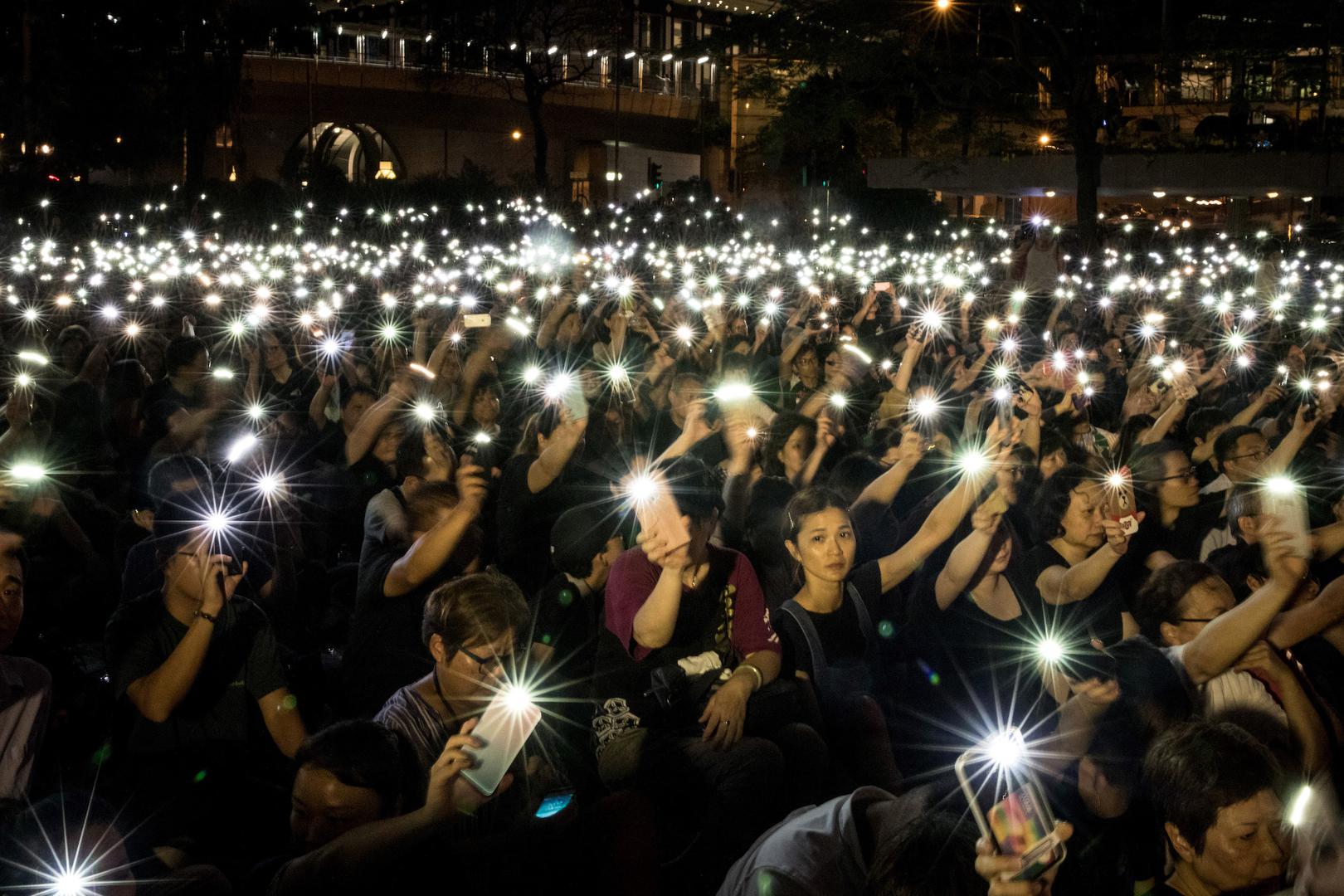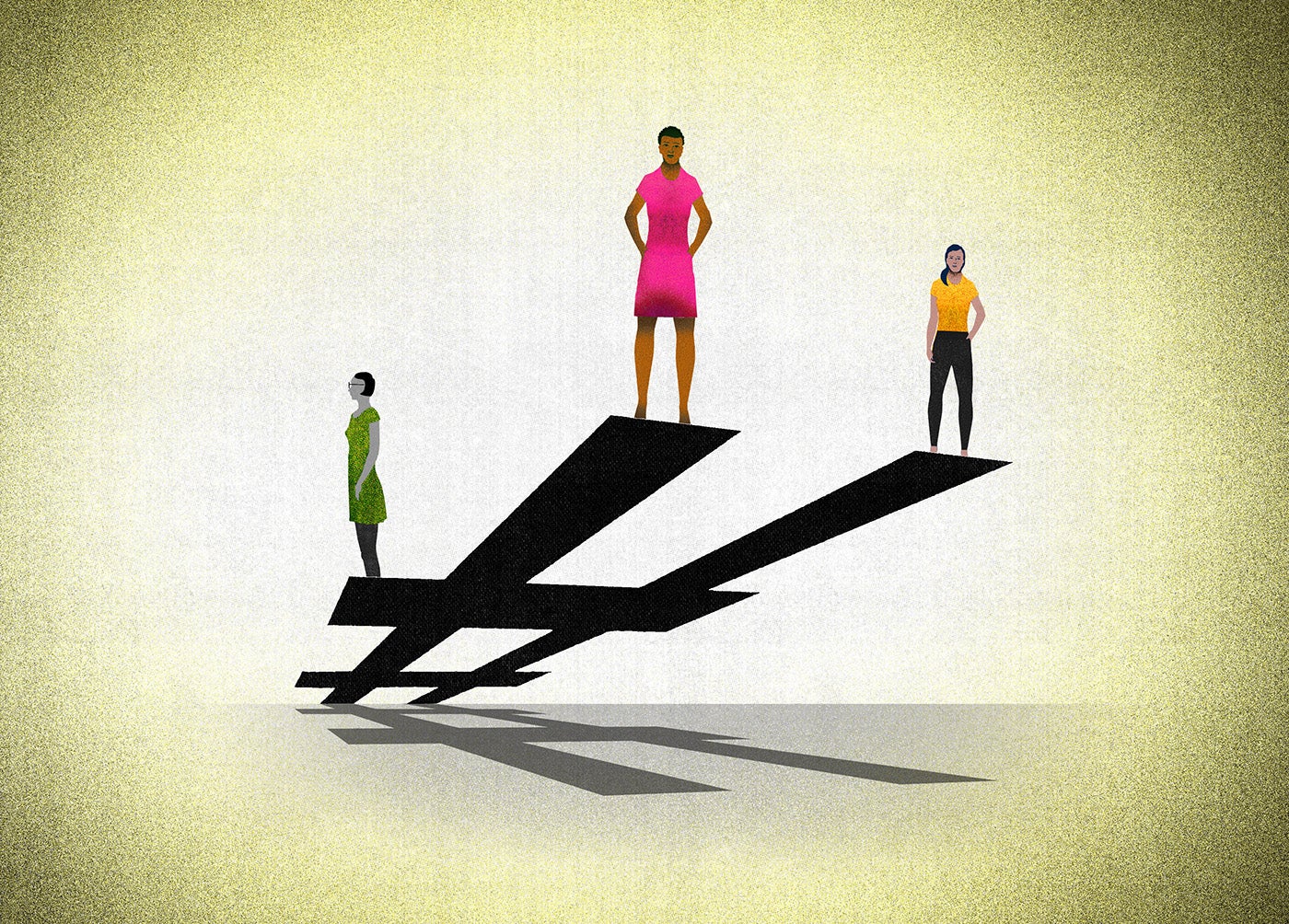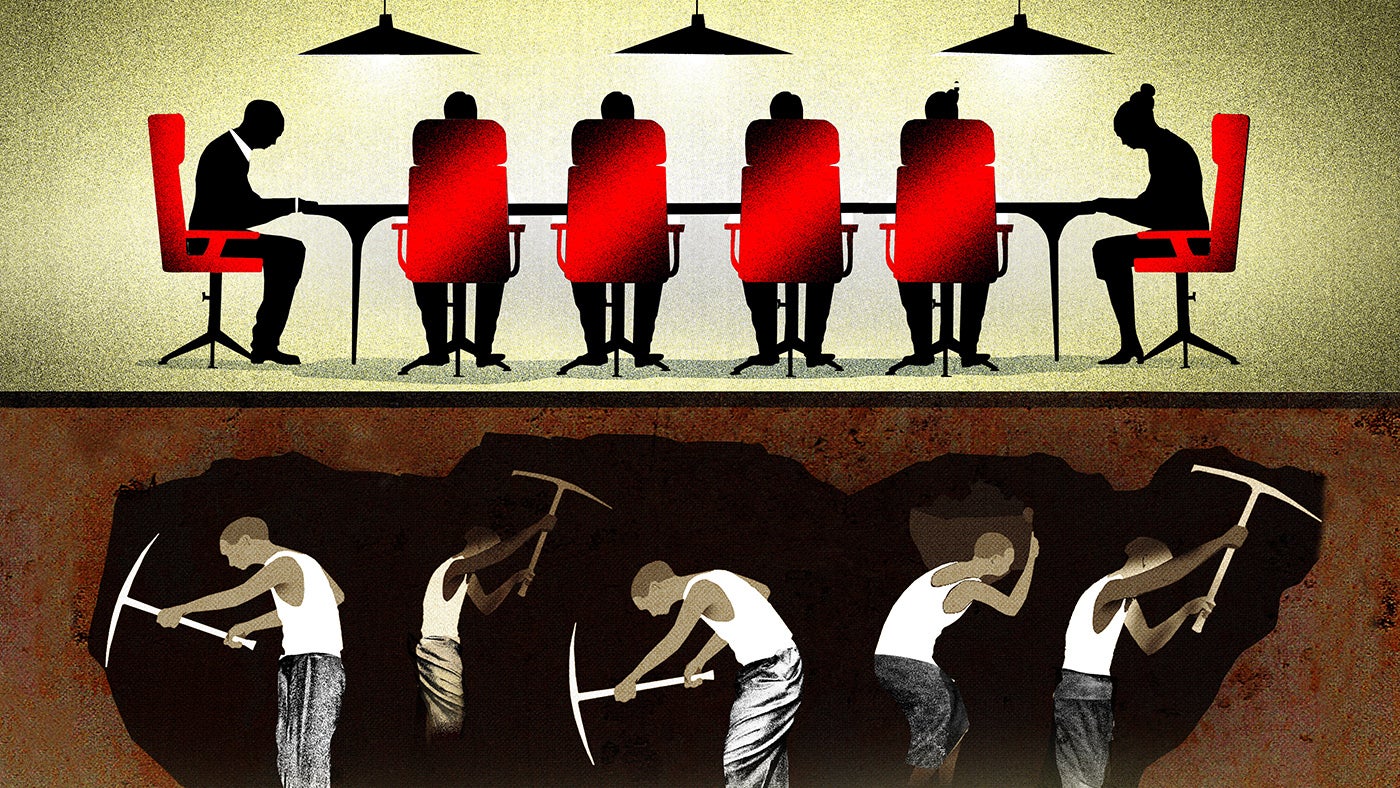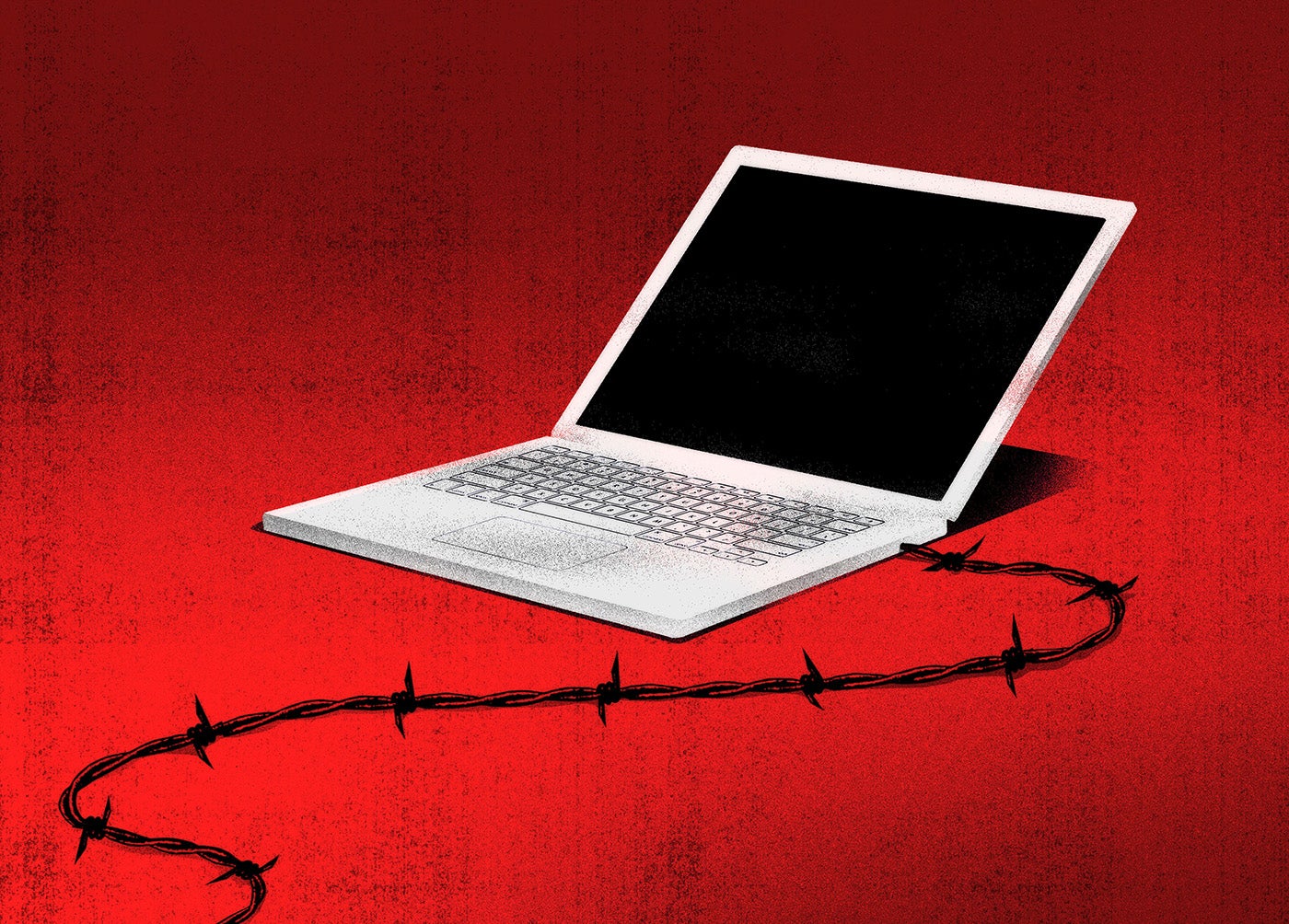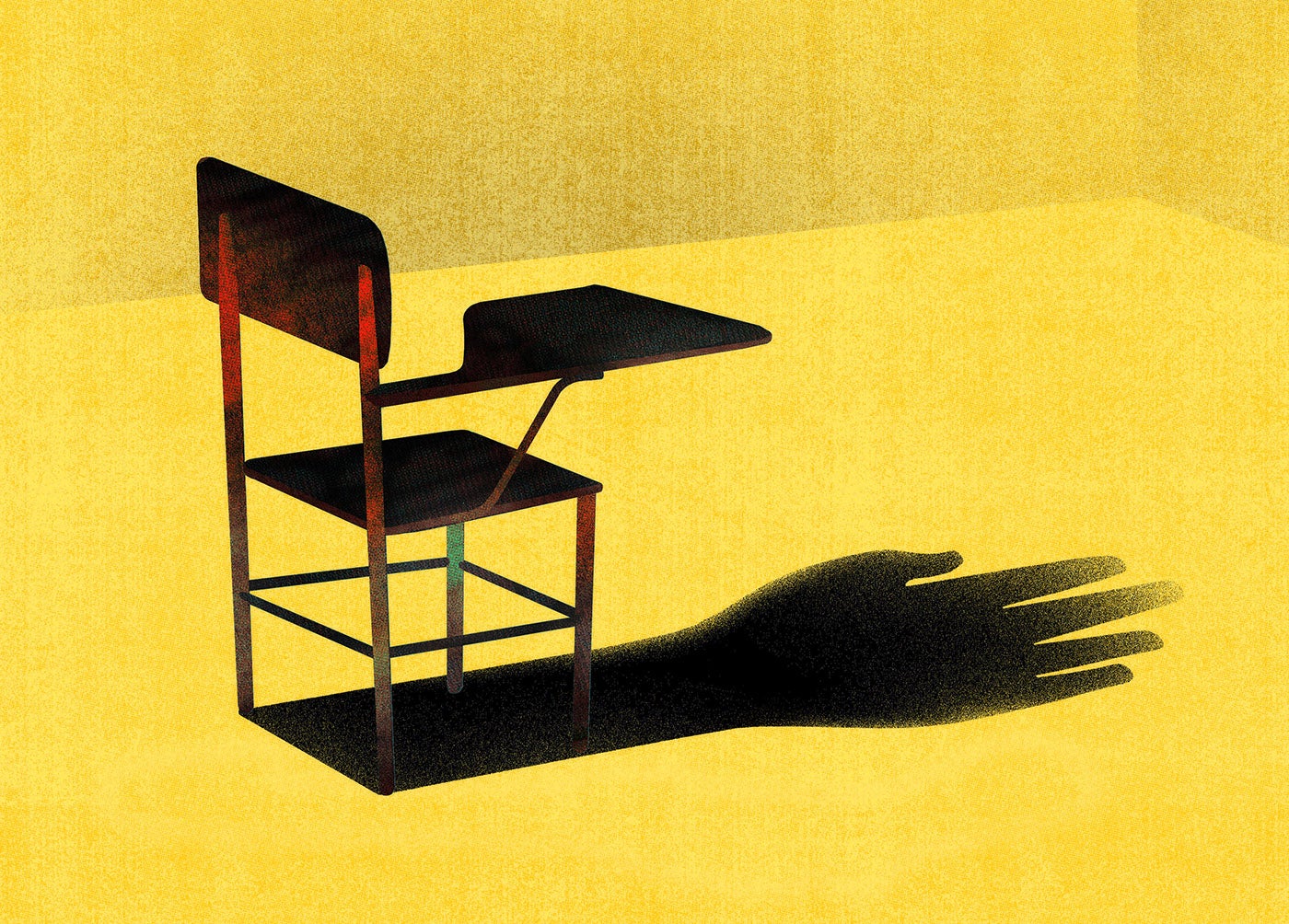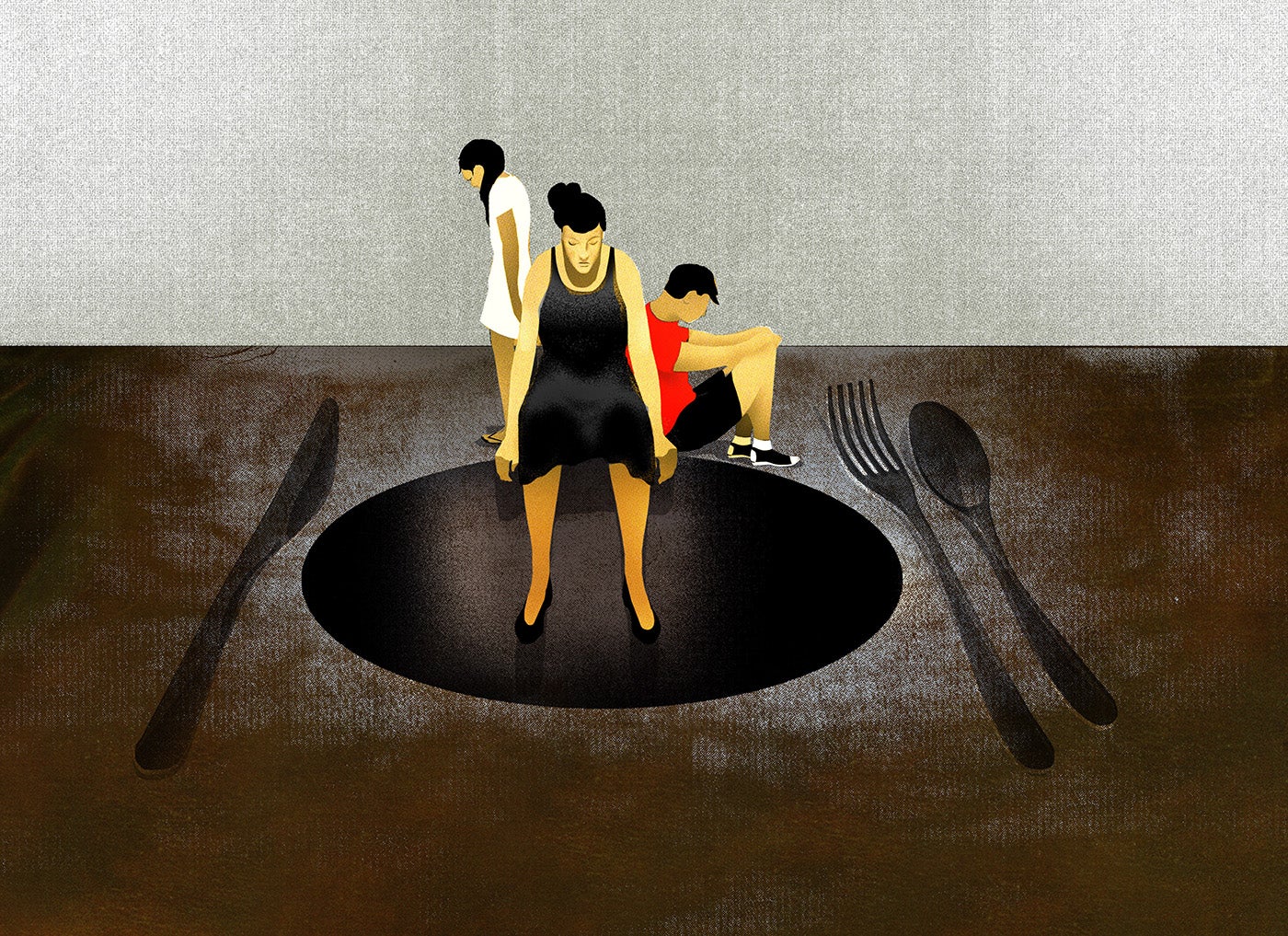The European Union acted in defense of human rights values in response to efforts by some EU governments to undermine democratic institutions inside their countries. Despite mixed fortunes at the polls, radical right populists continued to shape much of the debate around migration, as EU institutions and governments pursued migration policies that too often exposed people to violence and abuse and denied them access to asylum, especially by keeping them outside EU borders.
Migration and Asylum
Just under 101,000 people had arrived at EU borders in 2019 by mid-November, the majority by sea. EU governments remained focused on sealing borders including through reported unlawful pushbacks from EU borders including Croatia, Greece, Hungary, Romania, Poland, and Spain.
Sharp declines in boat arrivals from Morocco and Libya appeared linked to intensified migration cooperation by EU institutions and member states, despite concerns about treatment of migrants and asylum seekers in both countries.
An increase in boats reaching Greek islands underscored the lack of a functioning system for fair sharing of responsibility among EU members, and the ongoing failure of Greece to protect the rights of asylum seekers on its territory, including through pushbacks. The increase also drew attention to the 2016 EU migration control deal with Turkey, with Turkey’s president again seeking to use the threat of a greater number of arrivals in the EU as a form of political leverage.
There were numerous stand-offs at sea, as Italy and Malta refused to allow nongovernmental organization (NGO) and merchant ships to disembark people rescued in the Mediterranean. Despite a change in government in Italy and several high-level EU summits, no progress was made towards the adoption of a predictable disembarkation agreement and relocation mechanism.
In March the EU’s anti-smuggling mission Operation Sophia halted naval patrols in the Mediterranean that had rescued thousands, relying instead on aerial surveillance, with concerns that EU planes privileged providing information to the Libyan Coast Guard to enable interceptions and returns to Libya rather than broadcasting information about boats in distress, including to nearby rescue NGO ships. In October, the European Parliament narrowly rejected a resolution to improve search and rescue in the Mediterranean. The United Nations refugee agency UNHCR estimated that 1,098 people had died or gone missing in the Mediterranean by mid-November.
By mid-November, 12,680 people had reached Italy and Malta by sea, and 8,155 had been intercepted by the Libyan Coast Guard and taken back to automatic arbitrary detention amid worsening conditions as hostilities rage in and around Tripoli (see Libya chapter for more information).
As EU governments prioritized border control and outsourcing of responsibility for migrants and asylum seekers to other countries, they made limited progress on expanding safe and legal channels for migrants to enter the EU. The European Commission announced in September that EU countries had fulfilled 64 percent of the pledge to resettle 50,000 refugees in 2018-2019, a fraction of global needs.
Proposed reforms to EU asylum laws were not finalized before the May European elections.
At this writing, it remained unclear how the new European Parliament and Commission would take forward the package of reforms, including the most controversial issues relating to sharing of responsibility for processing asylum claims.
The charges in Italy and public vilification of Carola Rackete, captain of a Sea Watch rescue ship, exemplified the worrying trend of criminalizing humanitarian assistance to migrants and asylum seekers. Individuals faced charges related to assistance they provided to migrants and asylum seekers in several EU countries in 2019, including Belgium, France, Germany, Greece, as well as Italy.
Discrimination and Intolerance
In May’s European Parliament elections, populist and Eurosceptic parties increased their vote share—securing about 25 percent of Parliament’s seats compared to roughly 20 percent in the last election—but fell short of predictions in pre-election polls. Many mainstream parties that aligned with the anti-Muslim and anti-refugee agenda of the extreme right lost ground in the elections.
Racist intolerance, xenophobic, Islamophobic, and anti-Semitic sentiment and violence were still prevalent across the EU. Muslims, including women who wear the veil, continue to experience widespread hostility and intolerance in EU countries.
Anti-Semitism appeared to be on the rise. In a July report the EU’s Fundamental Rights Agency (FRA) found that 44 percent of young Jewish Europeans experienced anti-Semitic harassment. Eighty percent of young victims did not report harassment to the police or any other authority, while 45 percent chose not to wear, carry or display distinguishable Jewish items in public because of concerns about their safety.
Ten years since the United Nations Convention on the Rights of Persons with Disabilities (CRPD) entered into force, persons with disabilities still lack sufficient protection against discrimination in many parts of the European Union.
At time of writing, seven member states and the EU had yet to ratify the Istanbul Convention, a Council of Europe (CoE) treaty on combatting and preventing violence against women.
The majority of EU member states still require transgender people to obtain a “mental health” diagnosis to change their legal gender—a stigmatizing and discriminatory requirement. In February, the European Parliament passed a resolution calling on EU member states to ban medically unnecessary “normalizing” surgeries on intersex children—a discriminatory practice that Malta has banned and Portugal has taken some steps to regulate.
Roma continue to be one of the most marginalized communities in Europe with Roma girls and women being particularly vulnerable to exclusion and discrimination, according to the EU Fundamental Rights Agency.
Rule of Law
EU institutions maintained scrutiny of the conduct by EU governments that threaten the rule of law and human rights, including through enforcement action in the EU Court of Justice, and discussed new mechanisms to hold EU governments to account for such breaches.
There was modest progress in proceedings against Poland and Hungary under article 7, the political sanctions mechanism of the EU treaty for addressing such threats, triggered in December 2017 on Poland and in September 2018 on Hungary.
The European Commission used its legal enforcement powers against Hungary and Poland during the year. It launched a new procedure against Poland in April over its moves to discipline judges and referred to the EU court of Justice in October. It July, it brought proceedings against Hungary for denying food to asylum seekers trapped at the border and referred Hungary to the EU Court of Justice for a 2018 law criminalizing the provision of aid to asylum seekers.
In June, the EU Court of Justice ruled that a 2018 law in Poland forcing judges out of the Supreme Court violated EU law. In November, the EU Court ruled that Poland’s law on ordinary courts is contrary to EU law and affects judicial independence.
Three cases before the EU Court of Justice against Hungary were pending at time of writing. They concern three 2017 laws: forcing the Central European University out of Budapest; requiring civil society organizations that receive foreign funding to register as such or face sanctions; and an asylum law that allows for automatic detention of asylum seekers in transit zones and their summary removal to the Serbian border.
EU ministers held several debates on the laws undermining Poland’s judiciary in February, April and September. In September, EU ministers held their first hearing with the government of Hungary, one year after the European Parliament activated article 7.
In April, the European Parliament adopted a resolution on the rule of law and fight against corruption in the EU, flagging specifically the constitutional debates and the lack of protection for journalists in Slovakia and in Malta. In April, the European Parliament also held a debate on the rule of law in Romania.
In July, the European Commission released its proposals to strengthen protections for the rule of law inside the EU. Proposals included an annual report on rule of law in EU countries to assist early detection of problems, a new peer review mechanism for EU governments, and a more strategic use of existing enforcement mechanisms, such as the EU Court of Justice.
Discussions continued on a proposal to tie access to EU funds in the next EU budget cycle to respect for the rule of law. In July, the then President-elect of the European Commission, Ursula von der Leyen said, that she “stand[s] by the proposal to make the rule of law an integral part” of the next EU budget.
At time of writing, several people were charged over the murders of Daphne Caruana Galizia in Malta in 2017 and of Ján Kuciak in Slovakia in 2018, but the two cases remain unresolved. In September, Malta announced the establishment of an independent inquiry into the murder of Caruana Galizia. In April, Lyra McKee, shot during riots in Londonderry in Northern Ireland, became the fourth journalist killed in the EU in less than two years; to date, no one had been charged for her killing.
Counterterrorism
The mistreatment and fate of an estimated 1,200 Western European citizens held in Northeast Syria and Iraq as Islamic State (ISIS) suspects or their family members, most without charge, remained a major concern during the year.
European countries faced calls from the Office of the UN High Commissioner for Human Rights (OHCHR), Human Rights Watch and civil society groups to ensure the repatriation of ISIS suspects and their family members, and to take steps to avoid their exposure to the death penalty, torture, and unfair trials in Iraq.
During the year, countries including France, Sweden, Denmark, the Netherlands, and Germany brought home a small number of children each from Syria or Iraq. Italy repatriated one suspected fighter.
Following an October offensive into northeast Syria by Turkish armed forces, concerns for ISIS suspects and family members in the custody of Kurdish-led forces increased.
Some governments such as Denmark, the UK, and the Netherlands stripped citizenship from nationals believed to be in Iraq or Syria whom they suspected of having joined ISIS or other extremist armed groups. In March, the German government also announced plans to strip citizenship from dual nationals suspected of joining terrorist groups. The French government drew criticism for failing to protect 11 citizens sentenced to death by Iraqi courts following rushed proceedings in which there were allegations of confessions obtained through torture in some cases.
Concerns remained about the impact on freedom of expression of EU legislative efforts to take down online content deemed to be of a “terrorist” nature. The Fundamental Rights Agency found in February that the definitions of proscribed content in a 2018 EU directive was too wide; the definition was subsequently narrowed by the European Parliament. The law had yet to be adopted at time of writing.
There was no discernable progress in 2019 towards accountability for involvement by EU governments in the CIA’s post-September 11, 2001, torture and secret detention program.
Croatia
According to Croatian Ministry of Interior, in the first eight months of 2019, 11,813 new migrants and asylum seekers were recorded, mainly from Afghanistan, Pakistan, and Turkey, an increase of more than 8,600 compared to the same period in 2018. In the same period 974 people claimed asylum and authorities approved 71 asylum requests, including 13 from 2018.
Croatia reported that it blocked entry to 9,487 people at its borders in the first 8 months of the year. Despite credible reports during the year about illegal and violent pushbacks of migrants by Croatian police into Bosnia and Serbia, in breach of EU refugee and human rights law, Croatia faced no consequences from EU institutions. Croatia’s president acknowledged in December 2018 on Swiss television that force is sometimes used, but later retracted her comments.
Despite the consistent recommendations to Croatia from international bodies to facilitate community-based support for all people with disabilities currently in institutions, Croatia persisted with plans to place adults with disabilities in foster care, publishing a draft law in December 2018. In January 2019, the Ministry of Social Policy indicated that 4,216 adults were placed in 1,481 foster care families.
In July 2019, Croatia ratified the Safe Schools Declaration pledging to refrain from the military use of schools in wars. According to the Ombudswoman for Children, Roma children were most deprived group in 2019, with limited access to services.
In January, a Europe-wide universities-led Holocaust Remembrance project found historical revisionism in Croatia among the highest in the European Union.
During a year that saw several violent attacks on Croatian Serbs, Croatia’s ombudswoman and civil society groups expressed concern about the climate of intolerance against minorities.
Between January and September 2019, Documenta, an NGO, registered 39 war crime cases against 59 defendants before courts in Croatia. In the same period, 15 people were convicted for war-related crimes, including one for sexual violence.
France
French police crowd control and anti-riot tactics, used during weekly demonstrations, injured thousands of people since the end of 2018. Those injured include peaceful demonstrators, high-school students, and journalists. There has been widespread criticism of police action, including by the United Nations and the French ombudsperson.
French authorities opened scores of investigations into excessive force allegations, but as of November, only eighteen had been passed to a judge. In November, the Paris prosecutor announced that two police officers will be prosecuted for violence, the first such cases. At time of writing no officers had been held to account.
France adopted a protest law in April that risks undermining the right to freedom of peaceful assembly. UN experts in February expressed concern about the law and already disproportionate restrictions on the right to protest in France.
French border police in the Alps summarily returned unaccompanied migrant children to Italy during the year, and some child protection authorities used flawed age assessment procedures on unaccompanied migrant children, depriving some of the protection and care to which they are entitled. These findings were confirmed by the ombudsman in an annual report on children’s rights published in November.
The European Court of Human Rights ruled in February that France had subjected an unaccompanied child living in a makeshift camp in Calais to “degrading treatment” for failing to take steps to ensure he was identified as a child and given protection and care.
Aid workers and volunteers providing vital assistance to migrants were harassed by the police in Calais region and around the French-Italian border. Some faced trial and conviction for their humanitarian work.
In April, after a five-year investigation, the French ombudsman reported discriminatory and illegal orders at a specific police station in Paris, that targeted “black people and north Africans” in the surrounding area for identity checks and “homeless and Roma people” for systematic expulsion. French authorities gave no formal response.
In May, the National Human Rights Consultative Commission, an official body, published a report saying that in 2018, racist acts in France increased by 20 percent compared to 2017, with anti-Semitic acts increasing by more than 70 percent. The same report said that number of racist acts reported to the police decreased by 4 percent. The same month, SOS Homophobie, an NGO said it received 66 percent more reports of physical attacks on lesbian, gay, bisexual, and transgender (LGBT) people for 2018 compared to 2017.
In May, 17 humanitarian and human rights organizations denounced threats to press freedom after three French journalists were summoned by French intelligence services for investigating the use of French weapons by the Saudi-led coalition in the conflict in Yemen.
In September, the government announced measures to step up the fight against domestic violence, including steps to make it easier to report incidents and an increase in shelter spaces. It was criticized by civil society groups for not allocating enough resources to implement the plans. By November, 136 women had been killed in domestic violence in 2019.
In October, the National Assembly adopted a bill allowing lesbian couples and single women to access fertility treatments available only to heterosexual couples. It was before the Senate at time of writing.
Germany
Arrivals of asylum-seekers and migrants fell for a fourth year running. In the first 10 months of 2019, 122,225 asylum-seekers had been registered. By the end of June, 56,628 applications were pending.
Germany continued to play a leadership role in refugee resettlement in the EU. By October 30, Germany had accepted 229 refugees who had been rescued at sea. At time of writing, 13 municipalities had signed the “Safe Haven Cities” declaration, launched in April, indicating to the federal government that they were willing to accept resettled refugees rescued at sea.
A package of federal immigration and asylum law changes in June 2019, negatively impacted rights. NGOs criticized reductions in social benefits and the grounds for detaining migrants pending deportation, along with the continued use of prisons for immigration detention. Separate amendments to deportation law, which entered force in August, limited the ability of rejected asylum seekers who cannot be removed to work or study.
Attacks on refugees, asylum seekers and those providing them with assistance, remained a matter of concern. In the first half of 2019, police recorded 609 attacks on refugees and asylum seekers, 60 attacks on refugee shelters, and 42 attacks against relief organizations and volunteers. Police authorities attributed the overwhelming majority of these attacks to perpetrators with a “right wing motivation.”
The government disclosed in October that 12,500 “politically-motivated” criminal offences (a category that includes hate crimes) had been committed by members of far-right groups in the first eight months of the year.
Constitutional challenges were pending against laws in Bavaria that allow police to hold people in preventive custody for up to three months, in some instances without access to a lawyer, on the basis they could pose a danger to national security rather than for having committed a crime. During the year, legislators in at least four other German states proposed or passed similar worrying provisions.
Greece
Greece continued to host large numbers of asylum seekers while failing adequately to protect their rights.
In August, the UN Committee against Torture criticized the Greek government policy—linked to the EU-Turkey deal—of blocking asylum seekers who arrive on the Aegean islands from moving to the mainland.
Beginning in August, there was a sharp increase in the number of arrivals on the islands, leading to severe overcrowding and inhuman and degrading conditions in island camps.
At time of writing, 37,000 asylum seekers, the majority women and children, were on the islands, including more than 33,400 in camps designed to host a around 6,200.
Although authorities allowed more transfers during the year, the policy continued to trap thousands in overcrowded and abysmal conditions on the islands. This includes severe overcrowding, unsanitary, unhygienic conditions, and lack of basic services such as water and food. Medical care, trauma counseling, and psychosocial support remained inadequate with deteriorating mental health among asylum seekers, exacerbated by conditions of detention and uncertainty about the disposition of their cases.
Lack of adequate and secure facilities made physical and gender-based violence common in asylum camps. In its August report, the UN Torture Committee called on Greece to take effective measures to ensure that violence against refugee, asylum seeking, and migrant women is investigated, perpetrators are prosecuted, and victims are compensated.
In October, a new asylum law made it easier to detain asylum seekers for longer periods. It also reduced safeguards for asylum seekers, including by scrapping protections for vulnerable people.
The European Court of Human Rights ruled twice, in February and June, that Greece is in violation of its human rights obligations by detaining unaccompanied children in so-called protective custody in police station cells and detention centers. Despite the rulings, at time of writing 234 children were still detained in such premises, while hundreds more were in camps with adults or homeless due to authorities’ failure to provide adequate shelter or foster care. The October asylum law failed to repeal the “protective custody” regime.
In March, a prosecutor launched an inquiry into allegations of pushbacks at the Greek-Turkish land border. Such pushbacks, including of Turkish asylum seekers, continued throughout the year. A 2018 similar investigation by the Greek ombudsman had yet to yield results.
In June, the government amended the criminal code to define rape as sex without consent, following widespread criticism of a draft bill that had failed to do so.
In a July report the ombudsman found that people with disabilities have limited access to public spaces, state services and transportation, face discrimination in the workplace, and have difficulties in accessing education. In a September review, the UN Committee on the Rights of Persons with Disabilities, criticized Greece’s treatment of asylum seekers and refugees with disabilities. The Council of Europe Committee for the Prevention of Torture issued a report in February expressing concerns about inhuman and degrading treatment in psychiatric establishments and migrant detention centers
Hungary
Hungary’s government continued its dismantling of democratic institutions and the rule of law.
In November, the government proposed changes to the administrative courts that would allow state institutions to appeal unfavourable administrative court decisions to the Constitutional Court, where a majority of the judges are close to the ruling party. This could affect issues like corruption, elections, and police conduct. The measures were before parliament at time of writing and expected to be adopted in December.
The move follows an unsuccessful attempt by the government to establish a new administrative court system overseen by the Ministry of Justice, adopted by the Hungarian parliament in December 2018, but scrapped in May 2019 after criticism from EU and Council of Europe’s Venice Commission about the lack of checks and balances.
In June, the government renewed its attacks on academic freedom by introducing a law, approved by parliament, that increases state control over the Academy of Sciences, Hungary’s largest and oldest academic institution. The law gives the government greater influence over scientific research and funding.
Hungarian authorities continued to limit the number of asylum seekers permitted to enter at border crossings to one or two asylum-seeking families per week, leaving thousands stranded in poor conditions in Serbia. According to UNHCR estimates, by early September, more than 300 people were detained in the two transit zones, including about 170 children. Pushbacks to Serbia remain a concern.
In February, the government resumed its policy of denying food to rejected asylum seekers in the transit zones on Hungary’s border with Serbia. By August, the Hungarian Helsinki Committee, a civil society organization, had submitted emergency interventions on behalf of 27 food deprived asylum seekers to the European Court of Human Rights (ECtHR), which in all cases ordered the government to resume food distribution. The government complied with the orders in each case.
In July, the European Commission launched legal action against Hungary over the practice and referred to the EU Court of Justice the 2018 law criminalizing support to asylum seekers by non-governmental organizations. The Commission escalated the case in October. In October, the European Court of Human Rights ruled that the government’s decision in 2015 to deny a journalist access to a refugee reception center violated media freedom.
In March, Fidesz was suspended from the European People’s Party (EPP), the main centre-right European political family, for breaching the group’s values concerning rule of law and fundamental rights but was allowed to remain part of the EPP group in the European Parliament. An internal investigation was ongoing at time of writing.
Media pluralism continued to decrease with more and more outlets espousing a pro-government line, either as a result of ownership by people close to the government or direct government influence. December 2018 saw the merger of nearly 500 media outlets into one conglomerate loyal to the government, seriously impeding media pluralism in the country. Pro-government media continued to smear critical journalists and media outlets.
The government has yet to ratify the Istanbul Convention, with a minister describing it in July as “political hysteria.” There are no reliable statistics about domestic violence in the country.
Roma continued to face discrimination in housing, education, and public health care, according to the EU Fundamental Rights Agency.
Italy
There were at least 15 stand-offs at sea as Italian authorities denied permission to NGO ships to disembark people rescued at sea. In June, then-Interior Minister Matteo Salvini pushed through a government decree, converted to law by parliament in August, allowing Italy to deny NGOs authorization to enter territorial waters, ships to be seized and their owners fined. A new government, in place since September, indicated it would reform the decree.
By mid-November, 9,942 people reached Italy by sea, according to UNHCR, a 55 percent decrease compared to 2018.
Government decrees instituted in August an accelerated asylum procedure at the border and in October a list of 13 so-called safe countries of origin whose nationals now face a legal presumption they do not need protection.
Official statistics showed that asylum applications fell by over 50 percent compared to the previous year. In the first six months of the year, rejection rates hovered around 80 percent, significantly more than the 58 percent rejection rate in 2017. This is largely due to the abolition, in late 2018, of humanitarian protection permits.
In August, the UN High Commissioner for Human Rights (OHCHR) expressed serious concern over an increase in intolerance, racial and religious hatred and xenophobia, and the role of political leaders and members of government in allowing or encouraging these phenomena. The Italian NGO Lunaria reported a significant increase in violent racist crime in 2018: 126 incidents compared to 46 in 2017.
A law to combat gender-based violence, came into force in August. The law increases prison sentences for sexual crimes and domestic violence, criminalizes forced marriage, and requires prosecutors to meet within three days anyone who reports domestic or gender-based violence to police.
Netherlands
A controversial new law banning full-face coverings, including the niqab and burka worn by some Muslim women, on public transport, in hospitals, town halls, and educational institutions, entered force in August. There were complaints from public sector organizations that the law was unclear and from nongovernmental groups that it would have a discriminatory impact on Muslim women. Some local police forces and transport authorities said they would not prioritize enforcing the ban.
During the year the UN Human Rights Committee, the European Commission against Racism and Intolerance and the UN special rapporteur on freedom of religion and belief raised concerns about the discriminatory impact of legislation and public rhetoric on religious minorities, and Muslims in particular.
In May, the government proposed changes to the law on rape and sexual assault to introduce a requirement for consent, and to criminalize sexual harassment, to bring Dutch law into line with the Istanbul Convention. At time of writing no legislation had been introduced.
Dutch authorities continued to use their powers to remove Dutch citizenship from dual nationals suspected of traveling abroad to participate in terrorism. In April, however, the Council of State, the highest administrative court, annulled the decision to deprive two Dutch foreign fighters of citizenship, because the decision had been taken before the group they were believed to be affiliated with was proscribed. In November, a district court in the Hague ruled that the Dutch government should ensure the return of Dutch children, under the age of 12, of ISIS suspects, who remained in custody in northern Syria. The government announced that it would appeal the decision.
In April, the government told parliament it intended to simplify the process by which transgender adults could change their legal gender on their birth certificate, and to allow children aged 16 or under to apply to courts to have their gender registration changed, which is not currently permitted. No legislation had been introduced at time of writing.
In February, the government ended a policy in effect since 2012 allowing applications for permanent residency from children in asylum seeking families and unaccompanied undocumented children who had lived in the country for more than five years. It did, however, agree to consider applications of the 600-700 children in the Netherlands and eligible under the policy.
Poland
Government attacks on the country’s judiciary continued in 2019.
Judges and prosecutors were subject to arbitrary disciplinary proceedings for standing up for the rule of law and speaking up against problematic judicial reforms, an interference with judicial independence. The Disciplinary Office, established in September 2018, brought disciplinary proceedings against judges and prosecutors. The European Commission in April initiated legal action against Poland for its disciplinary proceedings against judges.
In May, police arrested rights activist Elzbieta Podlesna over a picture of a religious icon with a rainbow halo on the grounds of offending religious feelings and confiscated her mobile phone, laptop, and memory cards. The investigation was ongoing at time of writing.
In June, Council of Europe Human Rights Commissioner, Dunja Mijatovic, raised concerns about dismissals, replacements, and demotions of judges and prosecutors, and called on Polish authorities to “ensure that disciplinary proceedings are not instrumentalised.”
Judges and prosecutors were regularly discredited and smeared during the year by government officials and government aligned media.
In June, the EU Court of Justice ruled a 2018 Polish law that lowered the retirement age for the country’s Supreme Court judges that would have forced out some of the judges, breached EU law. The government had already suspended the law in December 2018 pending the EU court ruling.
In November, the EU Court of Justice ruled in a case referred by the Polish courts that the new Disciplinary Chamber of the Polish Supreme Court can only be competent to rule on judges’ retirement cases if its independence and impartiality is guaranteed.
An amendment to the penal code, approved by parliament would criminalize “promotion” or “approval” or sexual activity by minors, putting teachers and sex educators at risk of imprisonment and limiting children’s right to health information and care.
NGOs working on issues related to asylum and migration, women’s rights, or lesbian, gay, bisexual, and transgender (LGBT) rights were often denied public funding.
During the year, LGBT people became the focus of government and ruling party homophobic attacks. In July, at least 30 cities and provinces in Poland declared “LGBT-free-zones,” and Gazeta Polska, a pro-government newspaper, distributed “LGBT free zone” stickers in its publications. A Warsaw district court in July ordered the newspaper to immediately halt distribution of the stickers, pending the outcome of legal challenge by a rights activist.
Poland’s Commissioner for Human Rights Adam Bodnar was the target of a smear campaign by pro-government media and public officials for defending the human rights of a murder suspect.
Pushbacks of asylum seekers, most from the Russian republic of Chechnya and Central Asia, to Belarus continued, with inconsistent application of a 2018 Polish court ruling to halt the practice.
In August, the United Nations Committee Against Racial Discrimination called on Poland to prevent hate speech in the media, and to take action against websites promoting racial hatred.
The UN Torture Committee in August called on Polish authorities to provide adequate protection for victims of domestic violence and to consider decriminalizing abortion.
Spain
National elections in April and again in November failed to give any party enough votes to form a government.
According to UNHCR, by mid-November 22,400 people had reached Spain by sea, a 62 percent decrease over the same period the previous year, the apparent result of intensified cooperation with Morocco. Land arrivals to Ceuta and Melilla, Spanish enclaves on the north African coast, were down by 23 percent over 2018.
In a March report, the International Organization for Migration (IOM) said almost half of 1,300 migrants and refugees in Spain interviewed in 2018 had experienced exploitation and abuse on their migration journey, the majority in Morocco.
In February, the UN Committee on the Rights of the Child said Spain’s 2014 summary return of an unaccompanied Malian boy from Melilla to Morocco had violated his rights. Such summary returns continue and remain authorized by a controversial 2015 Spanish law. In October, a Ceuta judge closed on a technicality the case against 16 Guardia Civil agents in connection to the February 2014 deaths of 14 people at the border, little over a month after ordering their prosecution.
In June, the Supreme Court convicted five men for the gang rape of a woman in Pamplona in 2016, overruling a lower court’s 2018 conviction of the men on lesser charges, and sentenced them to 15 years’ imprisonment. In November, a Barcelona court convicted a different group of five men on lesser charges of abuse, rather than rape, because no violence or intimidation had been used because the 14-year-old victim was unconscious. The cases sparked protests and government pledges to examine possible changes to the criminal code. To date, no legal changes have been made.
In October, the Supreme Court convicted 9 pro-independence Catalan politicians and activists of sedition and sentenced them to between 9 and 13 years for non-violent acts in connection with the 2017 referendum on independence, previously deemed illegal by Spanish courts. Four were convicted of misusing public funds. All were acquitted of rebellion. Three other politicians were convicted of and fined for public order offences. In June, the UN working group on arbitrary detention said the detention of three of the defendants during the trial violated their rights.
In May, the UN Committee on the Rights of Persons with disabilities expressed concern about institutionalization of people with disabilities; the use of restraints and risk of violence in institutions; forced sterilization and abortions imposed on women and girls with disabilities; and the failure to guarantee full legal capacity to all people with disabilities.
In May, the UN Human Rights Committee found Spanish authorities responsible for the 2007 torture of a Basque separatist and urged Spain for the fourth time since 2009 to abolish incommunicado detention to prevent torture and cruel treatment.
United Kingdom
The UK’s planned exit from the EU (Brexit) strained democratic institutions and put human rights and the rule of law at risk.
In September, the government was forced by parliament to publish a key planning document outlining potential impacts of the UK leaving the EU without an agreement (known as “no-deal” Brexit). Its publication raised serious rights concerns including those related to access to adequate food and medicine, fuel shortages, interruptions to social care for older people and people with disabilities, possible public disorder, and the risk of increased dissident activity in Northern Ireland. The government accepted that a “no deal Brexit” would have the greatest impact on economically vulnerable and marginalized groups.
In September, the Supreme Court ruled unlawful the government’s five-week suspension of parliament earlier the same month, leading to parliament’s recall. The government was forced by law adopted by parliament in September to seek an extension to the UK’s membership of the EU aimed at avoiding a no-deal Brexit. Government sources criticized the Supreme Court ruling and threatened to ignore the binding law requiring an extension request.
The extension was granted by the EU27, and the Brexit date at time of writing was the end of January 2020. Parliament was dissolved in November after opposition parties agreed to a December 2019 general election (which had yet to take place at time of writing).
In May, the UN special rapporteur on extreme poverty published a report on the disproportionate negative impact of austerity-motivated spending cuts, combined with social security restructuring, on the rights of women, children, older people, and people with disabilities living on low incomes.
Reliance on emergency food assistance grew. The country’s largest food bank charity network, the Trussell Trust, reported distributing 1.6 million parcels containing a three-day emergency supply of food across the country. The Independent Food Aid Network reported that, at time of writing, at least 819 independent centers were also distributing food aid.
The UK continued to detain asylum seeking and migrant children.
In October legislation passed by the UK Parliament to decriminalize abortion and provide for marriage equality in Northern Ireland in 2020 came into force when the region’s devolved government failed to reconvene having been suspended since January 2017.
More than two years after the deadly Grenfell Tower fire in London that killed 71, there has been little accountability for the deaths or the fire. In October, the findings of the first phase of the public inquiry into the fire were published, focusing on the day of the fire. A criminal investigation was ongoing at time of writing.
In February, a new counterterrorism law entered into force, including measures that criminalize viewing online content, overseas travel and support to terrorism and could result in human rights violations. UK authorities continued to exercise powers to strip citizenship from UK nationals suspected of terrorism-related activity.
In July, the government refused to establish a judicial inquiry into UK complicity in the CIA-led torture and secret detention. At time of writing, no one in the UK had been charged with a crime in connection with the abuses. In November, a media investigation found evidence of a cover up by UK authorities of alleged war crimes by UK forces in Iraq and Afghanistan.
EU Foreign Policy
During a year where international law, bodies and mechanisms came under increasing attack by powerful countries including the United States, Russia and China, the European Union remained a staunch defender of multilateralism and a rules-based global order, despite internal divisions and resistance from individual EU members that sometimes led to muted positions or displayed EU double standards.
The unanimity rule in EU foreign policy at times proved to be an insurmountable obstacle, yet creative solutions were occasionally found. For example, travel bans to the 26-states Schengen zone were imposed against Saudi officials deemed to be involved in the murder of journalist Jamal Khashoggi, and when 27 of the 28 EU member states delivered a critical statement on Israel rights violations at the UN Security Council, circumventing Hungary’s last minute attempt to veto the effort.
The EU and its member states played an important role in the UN Human Rights Council, sponsoring and supporting the adoption of resolutions establishing or renewing commissions of inquiries, fact-finding missions or otherwise independent monitoring of human rights crises in countries as diverse as the Democratic Republic of the Congo, the Philippines, Myanmar, Venezuela, Burundi, Yemen, Syria, South Sudan, Belarus, and Cambodia.
Both before and after the 2019 May elections, the European Parliament (EP) played an important role both in its bilateral diplomacy with third countries and in pushing EU institutions and governments to take appropriate measures in reaction to human rights violations worldwide, distinguishing itself as arguably the most progressive EU body.
Among the most noteworthy examples were EP calls for targeted sanctions against Chinese officials responsible for the mass detention of Uyghurs and other Turkic Muslims in Xinjiang; the awarding of the prestigious Sakharov Prize to Uyghur scholar Ilham Tohti; an urgent resolution on Myanmar expressing support for innovative initiatives to pursue accountability for atrocity crimes against the Rohingya, such as the opening of a case on Myanmar’s possible violation of the UN Genocide Convention before the International Court of Justice; and a call for a much-needed “profound and comprehensive review” of the EU’s relations with Egypt in response to continued crackdown on dissent and grave rights abuses with impunity.
Despite an overall good record, the EP also sparked controversy including by giving the green light to EU trade treaties with Morocco that include occupied Western Sahara, and voting down a resolution which would have called on EU member states to resume search and rescue operations in the Mediterranean.
The externalization of migration remained one of the most concerning aspects of the EU’s foreign policy, largely operated through an unaccountable trust fund mainly aimed at strengthening border control in countries across the Sahel, the Horn of Africa and in Northern Africa. The EU’s handling of the migration file was increasingly used to rebut the EU’s arguments during human rights dialogues with third countries, and placed authoritarian leaders such as Turkey’s President Recep Tayyip Erdoğan and Egypt’s President Abdel Fattah al-Sisi in positions to pressure EU institutions.
Human rights conditionality attached to trade preferences and customs free access to the EU’s internal markt remained important tools for leverage. In February, the European Commission launched a procedure to suspend, in part or in full, Cambodia’s trade preferences, following Hun Sen’s reluctance to revert his crackdown the country’s political opposition and basic human rights as laid down in international law.
Countries such as Myanmar, Bangladesh, and Sri Lanka remain under tight scrutiny and risk similar consequences. Meanwhile, the European Commission and Council speeded up the conclusion of a free trade agreement with Vietnam despite the intensification of Hanoi’s serious human rights violations.
Responding to continued serious violations in among others Burundi, Venezuela, Syria, Myanmar, Iran, and eastern Ukraine, the EU maintained targeted punitive sanctions such as travel bans and asset freezes against individuals and entities deemed responsible. The EU also maintained embargoes on arms and/or equipment that can be used for internal repression in a number of countries including China, Myanmar, and Sudan.
In October, EU member states established their latest legal framework for targeted sanctions against individuals and entities responsible for abuses in Nicaragua, but at time of writing no one had been listed. EU member states continued their deliberations on the adoption of a “global EU human rights sanctions regime” that would allow the EU to target individuals and entities responsible for serious violations of international human rights and humanitarian law, without adopting country-specific sanction regimes.

